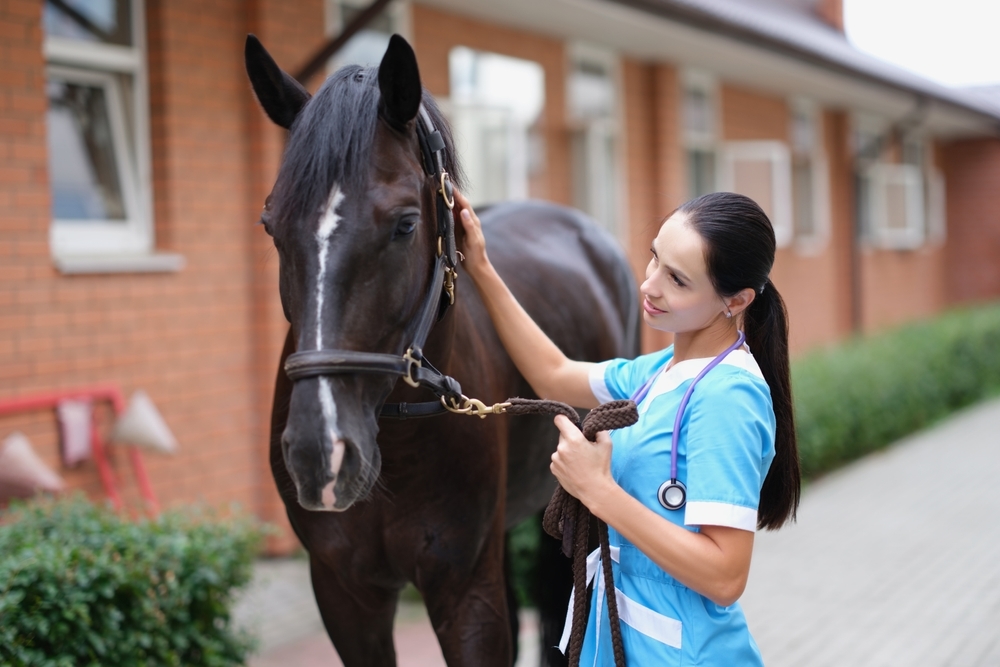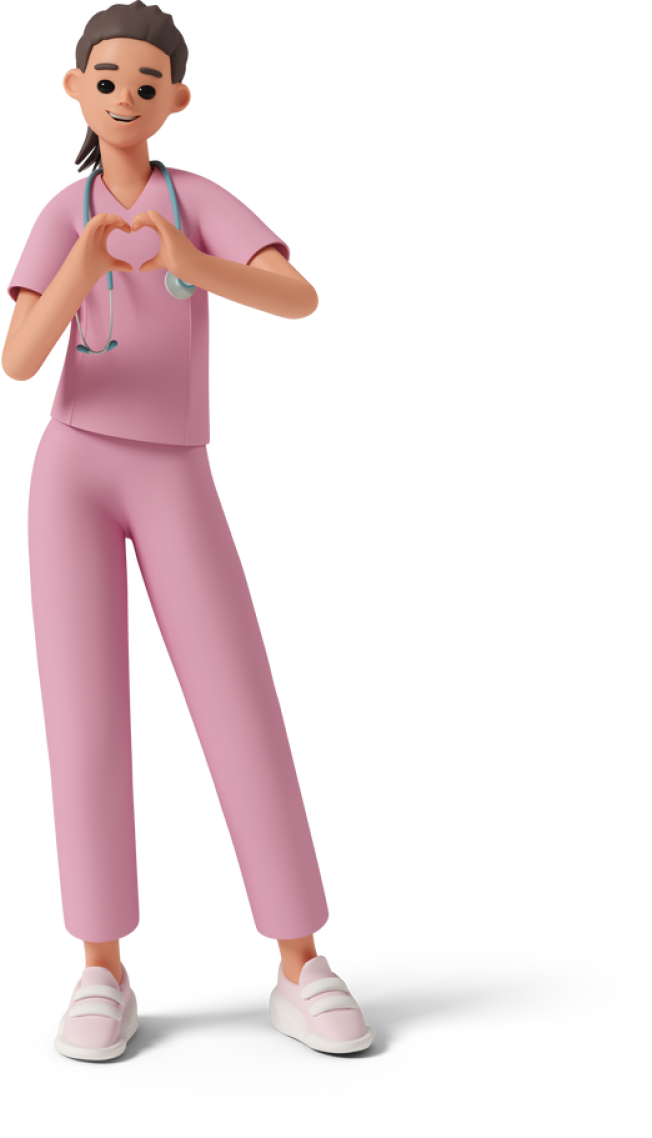
☝️ The most important facts in brief
- The numerus clausus for studying veterinary medicine is one of the toughest among German degree programmes, which means that the chances of getting a place without a very good Abitur are slim.
- Places for the veterinary medicine degree programme are allocated centrally. The Foundation for University Admissions is responsible for this.
- In addition to the Abitur, the study aptitude test, existing vocational training and other criteria also play a role.
- The NC of recent years provides an indication of the A-level grade required to gain a place on the veterinary medicine degree programme for the next semester.
📖 Table of contents
The Numerus Clausus (NC) for veterinary medicine indicates the Abitur grade with which the last applicant of the semester in question was awarded a study place via the so-called Abitur best quota. The high NC values for studying veterinary medicine show that there are significantly more applicants for the coveted places than can ultimately be accepted at the universities. It is therefore not easy to become a vet.
Are you interested in studying medicine?
We are happy to advise you free of charge about your options for studying medicine, including medical studies in other EU countries that are fully recognised in Germany.

Together for success - futuredoctor and studying medicine abroad
Would you like to Study medicine abroad and are looking for the most suitable university for you and don't really know where to start looking for a suitable country and a good university? futuredoctor will be happy to support you!
Besides the Student advisory service In addition to selecting the university and accompanying you to the desired on-site appointments, futuredoctor also offers support during the application process and preparation for possible aptitude tests, as well as orientation at the place of study - including the search for accommodation! Get your application quickly and easily free info pack!
How study places are allocated by the Foundation for University Admissions
The Stiftung für Hochschulzulassung (Foundation for University Admissions) is responsible for the centralised allocation procedure for university places in Germany. You can apply to this central organisation via the "Hochschulstart" website.
In addition to providing proof of your A-levels, your results in aptitude tests and other information, you will prioritise the universities listed in your application according to your personal preferences. This ensures that - if you are successful in the admissions process - you will be allocated the place that is highest on your list of priorities from the places available to you.
The allocation procedure for study places in veterinary medicine is essentially divided into three sections, which we would now like to give you an overview of and provide detailed information on the figures.
The Abitur quota (30%)
30% of the available places on the veterinary medicine degree programme are allocated via the Abitur best quota. Initially, separate lists are drawn up for each federal state, which are then combined in a complex process to form an overall list. 30% of the places available for a veterinary medicine degree programme go to the best applicants from this list.
The fact that separate lists are initially drawn up for each federal state for the allocation of the best Abitur quota is due to the fact that the Abitur is not equally difficult in every federal state. For this reason, it can happen that an applicant from the federal state of Schleswig-Holstein, for example, does not need quite as good an Abitur as potential students who have completed their Abitur in Rhineland-Palatinate, North Rhine-Westphalia or Saxony-Anhalt. It is therefore always important to look specifically at the figures for your federal state.
If your Abitur is not enough to get a place to study veterinary medicine via the Abitur best quota, this is no reason to give up your dream of working as a vet. There are two other procedures for the allocation of places, through which you also have the chance to receive the coveted letter of admission to study veterinary medicine.
The additional suitability quota (10 %)
10 % of the study places for veterinary medicine are allocated independently of grades via the additional aptitude quota (zEQ). While the so-called waiting semesters used to play a role in the zEQ, it is no longer possible to increase your chances of a place on degree programmes with admission restrictions by waiting semesters. Instead, other criteria play a role in the zEQ.
You can check your suitability, for example, by taking the test for medical degree programmes (TMS). This can be taken for a fee of 100 euros and is not only included in the additional aptitude quota, but usually also in the university selection procedures (AdH) described in more detail in the next section. We therefore recommend that you definitely take the TMS with good preparation if you cannot be sure of getting a place via the Abitur quota thanks to a top Abitur and therefore the chances via the zEQ and the AdH are also important for you.
Other important criteria for the zEQ are completed vocational training, professional experience, completed services such as a voluntary social year and prizes won in competitions whose topic is relevant to veterinary medicine. A score for your zEQ is calculated from test results and other eligibility criteria. 10 % of the veterinary medicine study places available for the semester are then awarded to the applicants with the highest zEQ score who have not yet received a place via the Abitur best quota.
The university selection procedure (60 %)
The majority of study places for veterinary medicine are allocated via the AdH, the university selection procedure. If you have not yet received an offer for a place to study veterinary medicine due to low scores in the other two selection procedures, there are still realistic chances here.
The score in the Abitur also plays a role in the selection criteria for universities
Your Abitur is also included in the AdH score, but is not the only criterion. Just as with the zEQ, the results of aptitude tests, vocational training, completed voluntary services and honorary posts and prizes won in education-related competitions can also increase your chances of studying veterinary medicine.
The universities themselves determine how heavily the individual criteria are weighted. It is therefore possible that your suitability to study veterinary medicine will be assessed very differently by the TU Berlin, for example, than by the University of Leipzig or other universities due to the different selection thresholds.
Succession and lottery procedure as a "last chance"
As some applicants are lucky enough to be able to secure a place on the veterinary medicine degree programme via several of the admission procedures used, there are often still places available after the first round. We would like to explain this to you using an example:
If an applicant has entered Freie Universität Berlin as their first choice, but "only" qualifies for the degree programme at LMU Munich, which is their third choice, via the two other parts of the admission procedure, they still have the chance to qualify for a place at FU Berlin. If this is successful, he can take up the place at the FU Berlin and the place in Munich can be awarded to another prospective student in the succession procedure.
Study places for veterinary medicine obtained by lot even without centralised allocation - this method is the exception
If there are still places available for the veterinary medicine programme at individual universities after the succession procedure, they can carry out a lottery procedure. This runs independently of the Foundation for University Admissions, but usually only affects a very small number of study places.
How good do you have to be to study veterinary medicine?
When allocating places for the veterinary medicine degree programme, the NC is no longer determined on the basis of the A-level grade including the decimal point, but by the exact number of points you achieved in your A-levels. How high your average must be in order to be considered for the best quota Study veterinary medicine depends on the federal state in which you completed your Abitur.
The following list shows which grade was required in which federal state in WS 2023/24:
- Baden-Württemberg: 1.3
- Bavaria: 1.4
- Berlin: 1.3
- Brandenburg: 1.2
- Bremen: 1.4
- Hamburg: 1.3
- Hesse: 1.3
- Mecklenburg-Western Pomerania: 1.3
- Lower Saxony: 1.5
- North Rhine-Westphalia: 1.3
- Rhineland-Palatinate: 1.4
- Saxony: 1.3
- Saxony-Anhalt: 1.4
- Schleswig-Holstein: 1.5
- Thuringia: 1.2
This list shows that an Abitur passed in Schleswig-Holstein. Rhineland-Palatinate or Lower Saxony is considered to be of higher quality than an Abitur from Thuringia or North Rhine-Westphalia. Overall, however, you need a very good qualification in all federal states.
The numerus clausus for the veterinary medicine programme is only determined retrospectively
Just as in other degree programmes with admission restrictions such as medicine, dentistry and pharmacy, which incidentally end with a state examination just like veterinary medicine, the exact NC cannot be specified before the application process.
The exact grade, or the exact number of points you need, is determined by the procedure itself. A ranking list of applicants is drawn up, from which the top applicants receive the places available in the respective admission section. The NC is then the grade/score of the last applicant to qualify for the degree programme in this way.
NC hurdle too high? What now?
If the NC was too high and you were unable to qualify for the veterinary medicine degree programme with your A-level average due to the strict selection criteria, you have several options.
Although waiting semesters are no longer counted, you can still keep your dream of working as a vet and reapply for the degree programme later. If the selection threshold has not been on your side so far, this can change if you have completed vocational training.
Working with animals, the content of which qualifies you to study veterinary medicine at university, is one of the best ways to be selected for your next application and soon be one of the lucky graduates.
Studying abroad as a solution
In many cases, the selection limit of universities for the veterinary medicine degree programme in other countries is not determined by the NC. Your degree from the universities we recommend will normally be recognised in Germany without any problems, so that you can then practise as a veterinarian.
We support you from the application process to studying for the admission tests and planning your studies abroad. You can find all the information you need on this website. Feel free to contact us if you have any further questions.
Starting shot
What are you waiting for? 🎉
Order your information package now, find out about studying medicine abroad and get started as a medical student!





